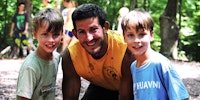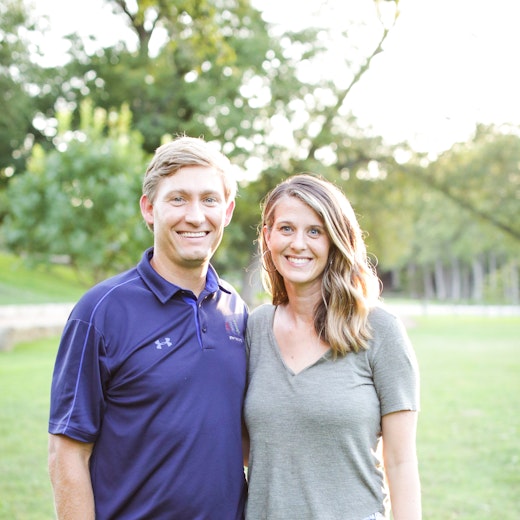Unstructured Play: An Integral Part of Kids Camp

What makes Camp Huawni a special kids camp? I’ll come back to this in a minute.
I recently attended one of my favorite camp conferences called CampMinder Camp in Boulder, Colorado. As many of you Huawni Parents know, CampMinder is our back-end, website system that allows you to, among other things, see the thousands of photos we post every summer. CampMinder’s mission is to blend creative vision with the best practices in camping, and they put on CampMinder Camp for the benefit of camps like Huawni.
Fellow director Mike McGuire and myself ran into another camp director at CampMinder Camp who had just spent the prior summer visiting 100 different kids camps across the country. Once I found that out, I couldn’t help but ask, “Of everything you learned, what was the one thing you observed that benefited campers the most?” His answered was surprising. He said, “We noticed that the best camp experiences were ones where kids got to experience more unstructured play.”
A big grin immediately surfaced on my face. Why? Because I knew, and many of you alumni and Huawni parents know, that much of what makes Camp Huawni unique is how unstructured play is the bedrock of our schedule. Sounds paradoxical, but it’s true.
For those of you new to Huawni, let me explain. Throughout the Huawni schedule, we intentionally give free play time to campers. For example, after supper time at Huawni is a one to two hour chunk of our day of unstructured play. After dinner campers grab a counselor and just play. Pick up volleyball and soccer games, quiet conversations with friends on Horned Frog Pavilion, Red Rover matches, tossing the baseball, a game of wiffleball, and guitar picking are just a few of the things you might find our campers doing in that free time. And remember, this is free play time away from parents. Campers get to decide what they want to do, when they want to do it, and how. The only rule is you have to be outside with your counselors.
In addition to the observation made by this colleague who visited 100 other summer camps, I wanted to look more into the evidence, the proof, to see how unstructured play is tied to childhood development. Is the claim that unstructured play substantially promotes childhood development true? And if so, how much does it matter?
1. Not having unstructured play can be a barrier
I first found that not having unstructured play can be a barrier to childhood development. In Melinda Wenner’s article titled The Serious Need for Play, Melinda sites Stuart Brown’s research, which found that in a span of 42 years and 6,000 interviews, “data suggest that a lack of opportunities for unstructured, imaginative play can keep children from growing into happy, well-adjusted adults. “Free play,” as scientists call it, is critical for becoming socially adept, coping with stress and building cognitive skills such as problem solving.”
2. There’s a significant positive correlation between ample time for free play during childhood and adult social success.
In Tom Jacob’s article titled The Value of Unstructured Play Time for Kids, Tom found research that linked free play and adult success. He also found evidence that suggested, “ Free play allows children to develop the flexibility needed to adapt to changing circumstances and environments— the ability that comes in very handy when life becomes unpredictable as an adult.”
3. Unstructured play allows children to develop flexibility needed to adapt to changing circumstances, which is handy when life gets hard as an adult.
I continued to find evidence linking unstructured play to healthy childhood development. Whether it be social success or adaptivity as an adult, free play looked to be at the root of promoting healthy development in a child’s growing up years.
My conclustion— unstructured play plays a significant role in healthy childhood development.
Further, I believe that unstructured play at overnight kids camp is that much more advantageous for children because campers get to take more ownership of their decisions on an ongoing basis since they’re away from their parents for multiple weeks. In fact, I’d argue that campers get more opportunities to take more safe risks and practice being more independent in a two-week session than in an entire year at home.
At Huawni in particular, unstructured play is in the DNA of our camp— it’s valued. Our #1 core value states that simple fun is the most fun, and simple fun happens often when there’s time for unstructured play. Here’s a short video showing a glimpse of one of our most popular, free play afternoons, Hike to the Carving Trees.
So what makes Camp Huawni special? Part of the answer, I believe, is that we make time every day for unstructured, free play.
For our Huawni Parents out there, how have your campers benefitted from unstructured play at Camp Huawni?
